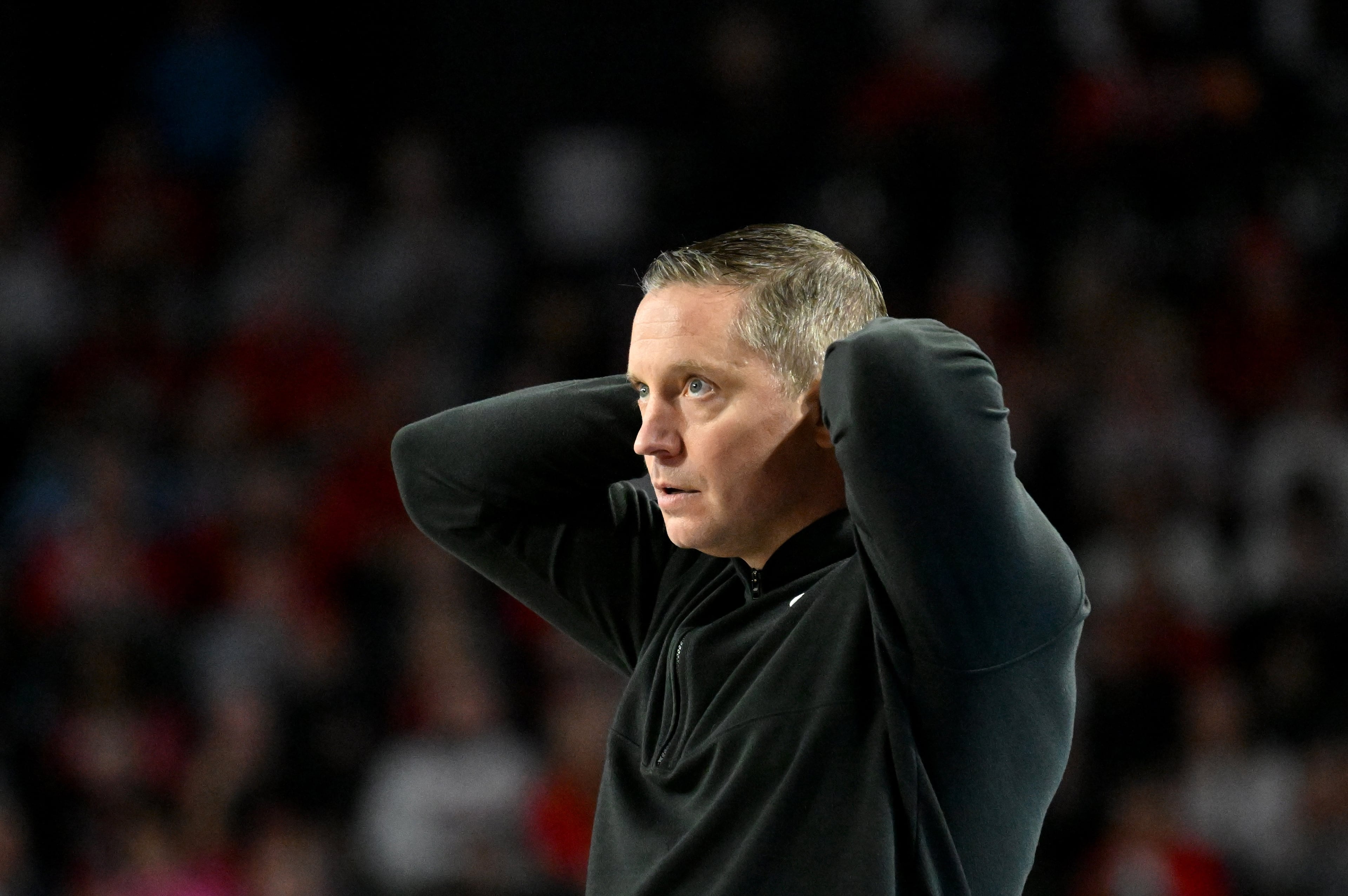Gov. Brian Kemp, Kirby Smart among speakers at celebration of Vince Dooley’s life










ATHENS — Billy Payne shared a story on Friday about Vince Dooley during a celebration of the former University of Georgia coach and athletic director’s life.
In the fall of 1964, Dooley showed up to recruit Payne at one of his Dykes High School football games. Payne knew Dooley would be there. He was nervous. After the game, Dooley walked up to Payne and reached out his right hand. As the two shook, Dooley reached around Payne with his left hand and gave him a hug.
Fifty-eight years after that hug, the two shared what would be a final hug as they sat on a couch in Dooley’s home in Athens. It was the day before Dooley died. The two spoke about many things, but the first was Dooley asking if Payne remembered dropping a critical pass against Auburn in 1966. He was a coach until the end. But Payne, and the nine other speakers during a celebration of Dooley’s life held at Stegeman Coliseum on Friday, said he was so much more.
“He was a teacher, not just of football skills, but of life skills,” Payne said. “He taught us the importance of integrity by demonstrating the skill every single day of his life.”
The ceremony was supposed to last an hour. It lasted almost two because of the anecdotes were many, the reverence deep. Among those who spoke were Gov. Brian Kemp, football coach Kirby Smart, Georgia president Jere Morehead, athletic director Josh Brooks, SEC Commissioner Greg Sankey, former swimming and diving coach Jack Bauerle, former players Willie McClendon and Frank Ros, and senior associate athletic director Glada Horvat.
Attending were family, fans and others who loved Dooley, those who played for him and learned to love him.
Dooley, who led Georgia to one national championship, six SEC titles and 201 victories, died at 90 years old on Oct. 28.
The university held the upbeat memoriam on Friday ahead of Saturday’s game against Georgia Tech, which will be played at Dooley Field at Sanford Stadium.
The floor of Stegeman was divided into two sections with 12 rows in each. On the left were Dooley’s family, friends and their guests. There were at least 100 people. On the right were his former players. There were at least 120 people there too.
In the stands of Stegeman were a few hundred more people, mostly dressed in red and black who came to appreciate Dooley.
Each speaker tried to highlight an aspect of Dooley that made him successful as a coach, athletic director, author, or gardener, among the many things he enjoyed.
Smart shared how he was in the dining hall recently and there sat Dooley, just observing the athletes. Dooley was struggling to talk but Smart said that even then he made him feel like the most important person on Earth.
Smart, a father, also knows the sacrifices Dooley made with regard to his family as he struggled to turn Georgia into one of the elites in college sports.
“I know the sacrifices he made to put Georgia on the map,” Smart said. “He paved the way with a foundation so strong that those of us who inherited it after him … what an incredible place he made.”
Brooks praised Dooley’s vision by pointing out that when he became athletic director in 1979, the program had one national title. It came in football in 1942. The university now has 23 national championships, 16 by women’s teams, and 78 conference titles because of Dooley’s focus and desire to turn the entire athletic department into the best in the NCAA.
Brooks said he tries to follow the two lessons he learned from Dooley: work hard and treat people with respect and kindness.
“Coach Dooley is University of Georgia athletics, and Georgia athletics is coach Dooley,” Brooks said.
Morehead highlighted Dooley’s insatiable curiosity.
Morehead said a conversation with Dooley would often start with a question: What book are you reading and is it worth me reading? That’s not something Morehead said he gets asked a lot. That desire to learn was reflected in the Dooley’s desire to help many areas of the university, including the library. One of his books, “Dooley’s Playbook: The 34 Most Memorable Plays in Georgia Football History,” was sold at Stegeman on Friday. Proceeds won’t go to athletics, but will instead assist the Redcoat Marching Band, which had members at Friday’s celebration.
“Coach Dooley’s love of our institution was unwavering, and he worked until the very end, tirelessly, to support this great university,” Morehead said. “He will be missed by all of us who had the opportunity to get to know him and love him.”
Kemp discussed how Dooley’s approach to business and his leadership style influenced him when he was a small-business person.
“His impact went far beyond the hedges,” Kemp said. “It transformed the entire athletics department and in many ways the whole university itself. When we yell ‘Go Dawgs,’ we will think of the legacy of Vince Dooley.”



